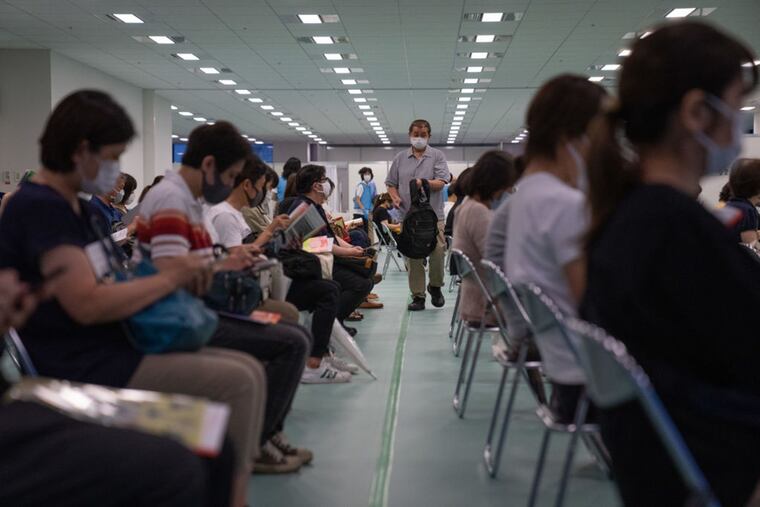Moderna faces new lawsuit from Warminster firm over lucrative coronavirus vaccine
Warminster-based Arbutus and its part-owned Genevant unit said in their lawsuit that Moderna infringed on one of their patents which they say was key in developing the vaccine.

Moderna faces yet another patent challenge over its coronavirus vaccine after Arbutus Biopharma and Genevant Sciences, both small biotechnology companies, filed a lawsuit on Monday alleging that Moderna hijacked its technology to develop the multibillion-dollar vaccine.
Warminster-based Arbutus and its part-owned Genevant unit said in their lawsuit that Moderna infringed on their patent for so-called lipid nanoparticle technology, which they say was key in the development of Moderna’s mRNA vaccine and took scientists from Arbutus and Genevant “years of painstaking work to develop and refine.”
The suit had been expected after Moderna lost a U.S. Court of Appeals ruling last year in the protracted patent battle.
Moderna, a 10-year-old Cambridge, Mass.-based biotechnology firm that had not marketed any product before the pandemic, has said it expects coronavirus vaccine sales to top $19 billion in 2022. Arbutus and Genevant — a company spearheaded by former Arbutus scientists — could demand some of that as royalties if their challenge succeeds.
The suit is one of two high-profile legal fights Moderna faces over its blockbuster vaccine, which was developed in less than a year and has been key to fighting the pandemic.
The company is embroiled in a patent dispute with the federal government after it disputed claims that three scientists from the National Institutes of Health were co-inventors of the vaccine.
Government scientists worked with Moderna in January 2020 to rapidly develop the spike protein technology key to its vaccine. The company also received billions in federal funding to develop its vaccine and to boost manufacturing capacity.
Moderna said in December it was pausing its dispute with the government to "avoid any distraction" in the fight against the omicron variant.
Moderna and Arbutus had been operating under licensing terms for Moderna's earlier experimental use of the nanoparticles, Arbutus and Genevant contend in their suit. The particles are used to protect and deliver messenger RNA as it travels through the body.
After Moderna rolled out its coronavirus vaccine using the nanoparticles in 2020 in record time, Arbutus and Moderna communicated about a license for the new shots without reaching any agreement, the lawsuit says.
"Relying on Arbutus's LNP [lipid nanotechnology particle] technology ... Moderna was able to begin producing its COVID-19 vaccine within just a few days of the SARS-CoV-2 genomic sequence entering the public domain," the lawsuit says.
“Moderna’s COVID-19 vaccine could not have been developed, much less on a timeline unprecedented in human history, without Arbutus’s proven and patented LNP delivery technology — technology that had transformed vaccine design from a years-long project into one that could be performed within an hour over a January weekend,” the lawsuit says.
The key invention in the case is the arrangement of four lipids that make up the shell of the vaccine's nanoparticle. The lipids form a sphere around the mRNA payload. The mRNA is released inside a human cell and instructs the cell to produce the coronavirus's unique spike protein, which in turn triggers production of antibodies and enables the body to fight the virus if confronted with it.
The ratio of the four lipids in the spherical bubble is the telltale key to the Arbutus invention, the company maintains. When the first scientific preprint emerged of how Moderna, with help from NIH, made its coronavirus vaccine at the beginning of the public health emergency, the authors listed a lipid ratio that matched the Arbutus patents, the lawsuit says.